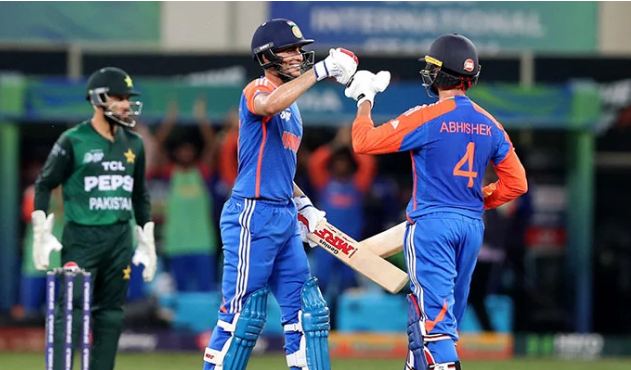Pakistan’s much-anticipated clash with India in the Asia Cup T20 turned into a one-sided affair, exposing once again the glaring weaknesses in the national cricket setup. Despite posting what looked like a competitive total of 171, Pakistan’s bowling attack collapsed under pressure, allowing India to chase with ease. The result was not just a defeat—it was a reminder of the gulf that currently separates the two sides.
India, ranked No. 1 in the world, showcased why they are regarded as a compact and formidable team. With multiple match-winners across all departments—batting, bowling, and fielding—they looked calm, composed, and clinical in execution. In contrast, Pakistan, languishing at No. 7 in the rankings, appeared disjointed, without a single player capable of turning the game on his own. The comparison was stark: where India had depth, strategy, and consistency, Pakistan displayed inexperience, poor planning, and tactical errors.
Much of the blame for the defeat must be placed on captain Salman Ali Agha, who, though talented, lacks the experience required to lead at the highest level. His decisions on the field reflected nervousness and a lack of vision. Allowing the opposition to dictate terms, misusing bowlers, and failing to respond tactically were costly mistakes. Leadership in cricket, especially in high-pressure games against India, requires maturity and foresight—qualities Salman is still developing. His appointment, therefore, raises questions about whether the Pakistan Cricket Board (PCB) acted prematurely in entrusting him with such responsibility.
Another questionable decision by the management was sidelining proven performers like Babar Azam and Mohammad Rizwan. Whatever criticisms these senior players have faced, they remain Pakistan’s most reliable batsmen in crunch situations. Replacing them wholesale with relatively inexperienced players deprived the team of the balance and stability needed in high-stakes encounters. Senior players provide the backbone around which juniors can grow; without that spine, the team appears fragile and exposed.
This defeat also highlights a deeper malaise: the flawed selection and management process. Too often, Pakistan’s cricketing decisions seem influenced by favoritism, internal politics, or experimentation rather than merit and long-term planning. A team cannot be built on hand-picked choices or short-term gambles. What Pakistan needs is professionalism, vision, and above all, meritocracy. Only the right men in the right jobs—both on the field and in the management—can restore Pakistan’s standing in world cricket.
It is time for serious introspection. Senior, proven players must be reintegrated into the squad to provide guidance. At the same time, structural reforms in the team’s management are urgently required. If Pakistan cricket is to move forward, there must be accountability at all levels—selectors, coaches, and administrators included. Without it, defeats like the one against India will become the norm rather than the exception.
The Asia Cup defeat should not be seen merely as a sporting setback; it is a wake-up call. Pakistan cricket stands at a crossroads, and the choices made in the coming weeks will decide whether the team continues to stumble or begins to rebuild a pathway back to respectability.

















